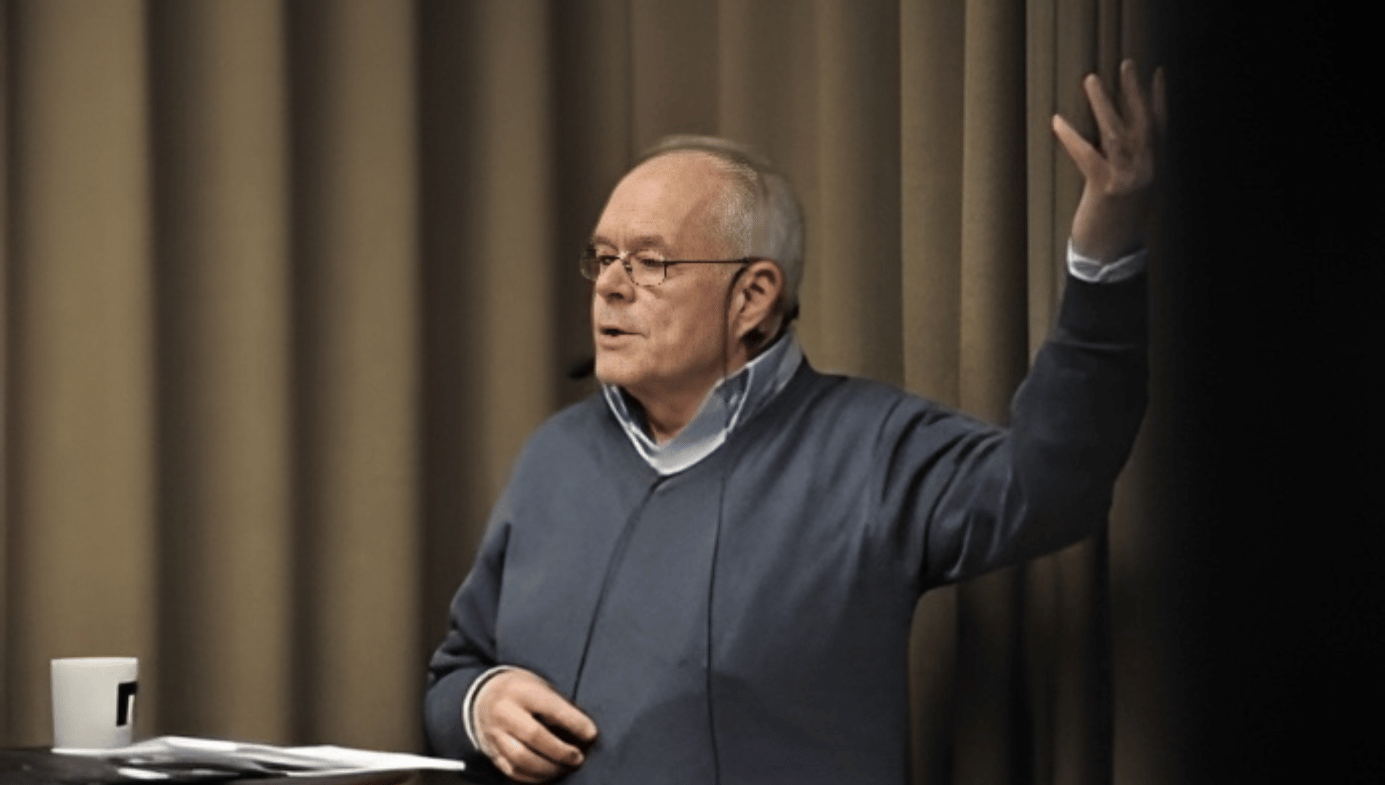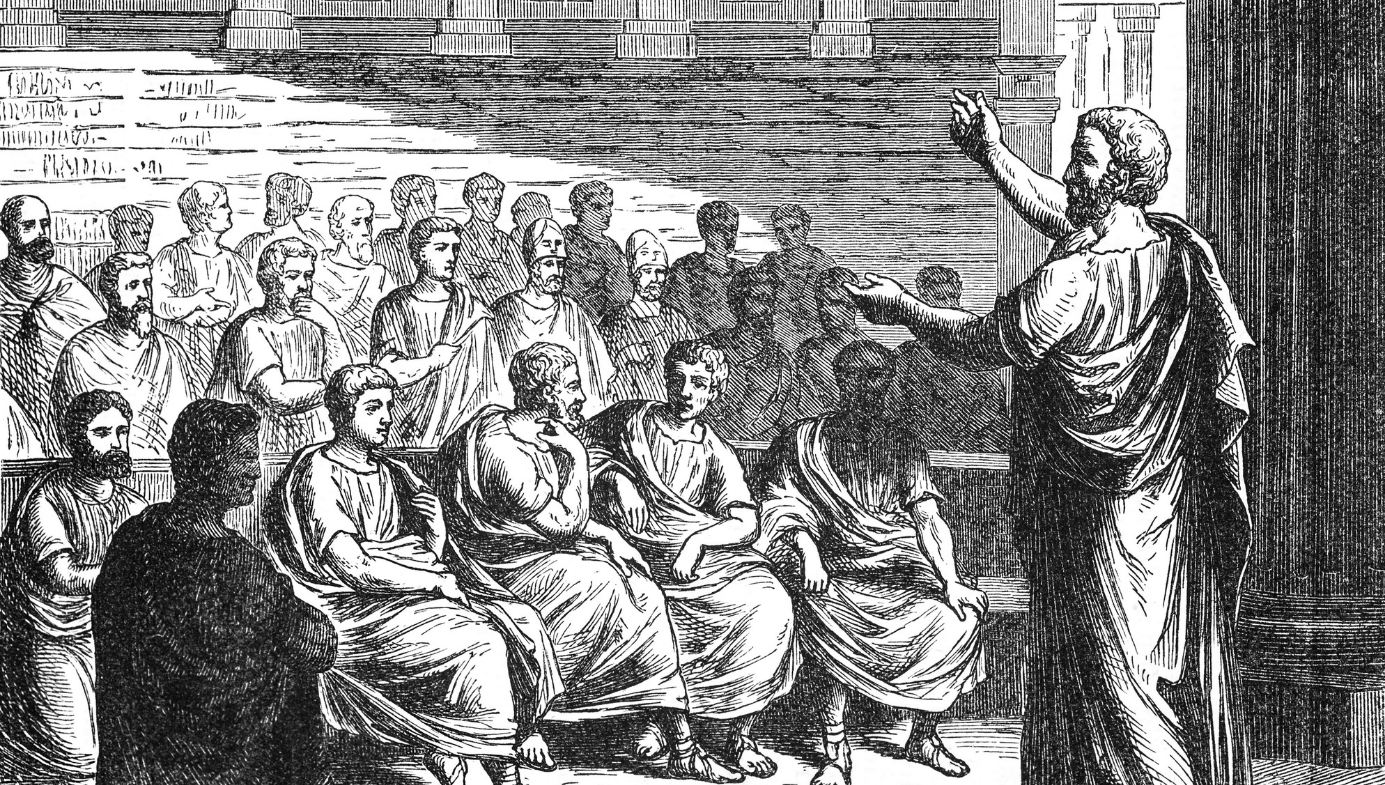philosophy
Talking Philosophy with Bob Goodin
The case against retweets, what’s wrong with the War on Terror, equality in light of difference, and more.

Professor Robert (Bob) Goodin is an Emeritus Distinguished Professor in Philosophy at the Australian National University and was the founder and editor of The Journal of Political Philosophy from 1993 to 2023. He is the founder and editor of the new Open Access journal Political Philosophy. Goodin is also the author of an enormous number of books and papers on topics across social, moral, and political philosophy, most recently Perpetuating Advantage: Mechanisms of Structural Injustice with Oxford University Press. We spoke over email.
Holly Lawford-Smith: Richard Dawkins said in a recent debate with Ayaan Hirsi Ali that in the place where people of faith have God, secular thinkers have moral philosophy. Do you think moral philosophy is currently functioning—or has functioned historically—in a way that allows it to give people something meaningful in place of faith?
Bob Goodin: Well, both provide prescriptions for how to behave. Their grounding differs: ‘because God commanded it’ versus ‘because it’s the right thing to do [to fulfill your duty or produce the best consequences or whatever].’ So the reasons and reasoning differ, but both gods and moralists are bossy like that. Meaning in life, though? Religion purports to provide that. Does morality? Morality tells you more how to live rather than why to live. A certain sort of moral prig (virtue ethicists perhaps, but maybe not just them) may find comfort in the deathbed thought that ‘I’ve lived a life of utter moral rectitude.’ Most of us, however, would surely find more comfort in the thought that ‘I’ve lived my life well’—where ‘well’ involves something more than merely ‘conforming to the moral law.’ So no, moral philosophy probably can’t give us everything faith ostensibly can.
HLS: Across your career, what philosophical issue captured your attention in the most dramatic ways? And what did you end up thinking about it?
BG: I’m a political philosopher, so most of my time has been spent reflecting philosophically upon issues thrown up by real-world politics. Let me give two examples.
My largest recurring preoccupation has been with mounting ethical defences of the welfare state, something I began doing when Ronald Reagan and Margaret Thatcher began (and Bill Clinton and Tony Blair on the other side of politics continued) trying to dismantle it. They and their philosophical fellow travellers offered many bad arguments to be rebutted. But the best positive justification I found for the welfare state was as a device to protect the vulnerable. That we have a duty to protect the interests of people who are particularly vulnerable to our actions and choices seems to be a principle of wide application. It applies to relations between parents and their children, employers and their employees, current generations and future ones. It also applies to relations between states and their citizens (or richer and poorer fellow citizens, if you prefer). And that, on my reading, is what the welfare state is all about. My arguments did not win over everyone, within philosophy or beyond. When Deputy Prime Minister Brian Howe read my book and began giving speeches about the importance of protecting the vulnerable, Bob Hawke scolded him for “preaching again.” But to my mind he was preaching truth.

The second example concerns 9/11 and the ensuing War on Terror, which I thought from the start was hyperbolic overreaction and pure cover for something far more nefarious. But putting the point more philosophically, I asked myself a question which became the title of one of my books: “What’s wrong with terrorism?” To which I answered that “frightening people for political advantage” is both the defining feature of terrorism and what is distinctively wrong with it (over and above the ordinary crimes committed in the course of it, murder etc.). And then I asked, “So, what exactly are Bush and Blair doing, with their ‘War on Terrorism,’ other than precisely that?” My old friend Cass Sunstein really liked the book and told all his close colleagues at the University of Chicago Law School to read it, among them Barack Obama whom Sunstein was mentoring as a junior colleague there. So when Obama, upon assuming the presidency, immediately declared terrorism merely an “ordinary crime,” as I had suggested it should be seen, I was gratified that my book might actually have made a mark—although Obama is smart enough that he surely would have come to the same conclusion even without my book.
HLS: We seem to be in an era where being a moral and political zealot is fashionable. Obviously, there are some moral and political issues we should be zealous about, but in my view there are many more about which we should not—about which we should rather think about how to interact in a civil way with others in spite of vast value disagreement. Do you have any sense of what’s going on here culturally, as in why now, and any sense of what might help to achieve a better balance?
BG: No doubt the rise of populist and authoritarian political leaders around the world has done much to liberate intemperance in both their followers and in those pushing responding to them, and this spills over into academic disputes as well. I’m not sure what we can do about that except “vote him away” (in the words of a delightful podcast parodying Trump during the 2020 campaign). When other people have enthusiasms that I do not share and get really worked up about things I couldn’t care less about, no problem: we can just ‘live and let live.’ Problems arise because, as you say, “there are some moral and political issues we should be zealous about.” So it would seem that, on your own account, people who disagree about those issues should disagree zealously about them. I think what you should be looking for here is not so much a way of telling people what they should and shouldn’t get worked up about and more a way of disagreeing zealously but civilly. One final thought: ‘disagreeing’ rather suggests that you are engaged in an interaction attempting, if not to change one another’s minds, at least helping the other to understand your position and you theirs. A lot of the most distasteful zealotry is not remotely of that discursive sort at all but is, rather, grandstanding and virtue signalling directed at your own amen chorus rather than at those disagreeing with you. Again, I’m not sure how best to tackle that, but banning retweets might be a start.
HLS: Thinking about the history of minority groups achieving equality, what is your sense of the possibility of ‘equal, in spite of difference’? It seems to me that the template for equality has been sameness, for example in thinking about race, the idea that there’s so much more variation within groups than there is between groups, we’re all more or less the same. But feminism runs into the problem that it seems like we tried equality as sameness and it just meant trying to fit women to a male template that they didn’t fit, because of pregnancy. So now some people are trying equality as difference. But I worry that ‘different’ is always going to end up meaning ‘and inferior’. What do you think?
BG: What I’m about to say abstracts from your question about minority groups (or majority groups like women) achieving equality. But sameness surely cannot be a sensible approach at all. No two of us are the same in every respect. Equal treatment requires moving up to a higher level of generality, abstracting from our differences. (If you want a slogan, call it “equality in difference.”) We are all humans deserving of equal respect; each of us has a life to lead, in the phrase from the seventeenth-century Putney Debates. And that sort of thought gives rise to specific policy prescriptions like equality before the law. New mothers and new fathers are both parents, giving rise to policy prescriptions for paternity leave to be shared by both of them. All paid labourers are equally paid labourers, giving rise to policy prescriptions for equal pay for equal work. And on the question of whether ‘different’ always codes as ‘inferior,’ I can only report that when Oxford undergraduates who had graduated from Eton said they were ‘different’ they meant just the opposite by that.

HLS: In the US at least, there seems to be increasing political polarisation, but I’m also noticing an increasing frustration in at least some quarters with the very ideas of Left and Right. Do you think ‘the Left’ and ‘the Right’ are meaningful concepts? If so, what do you think they capture, and are things very different between the US and Australia?
BG: Those terms have taken on very different meanings over the years, of course. But I think they once did indeed have pretty precise connotations, of a distributional sort: ‘Left’ meant downtrodden wage labour and ‘Right’ meant rich capitalists. Of course, lots of things correlated with those fundamental features, and those other things came over time also to be associated with ‘Left’ and ‘Right.’ But the correlations were never perfect, and over time yet other things that did not correlate particularly well at all got overlaid on those terms. So I agree, nowadays those terms are at best cluster concepts (concepts involving multiple elements no one of which is necessary) and at worst simply a mess. US—Australian differences? Well, class politics has always been more dominant in Australia (as I sometimes joke, everyone in the US thinks they’re middle class whereas everyone in Australia claims the mantle of working class). And the keys to understanding US politics, and the Left-Right divide such as it is there, are race and religion: black and irreligious people are (or historically were) Left and racists and evangelicals are Right. It is not that we do not have race or evangelical divisions in Australia, but those are much more defining of politics in the US than in Australia.
HLS: I’m sometimes asked about whether I would support a government ban of the sex industry. I know that I’m morally opposed to the sex industry, but I err on the side of advocating for a grassroots movement against it, as opposed to a top-down intervention. There’s a background question here about when the law should lead and when it should follow, right? Is there a principled answer to that question that could speak to whether it’s appropriate to also support top-down intervention against the things we oppose morally?
BG: That looks to me like a false choice. The only way you are ever going to get anything banned is through government action; and in a democracy, the only way you are ever going to get government action (that is not soon undone, anyway) is through popular pressure. Of course sometimes governments do things off their own bat, but those things are at risk of soon being undone if they meet with any substantial popular resistance.
HLS: Finally, who are some philosophical thinkers, or specific books/papers that you would recommend to a non-philosophical audience curious about moral, political, and/or social philosophy?
BG: At the risk of nepotism I’ll plug here my favourite mentee’s recent book, Lea Ypi’s Free: The Coming of Age at the End of History. It is a wonderfully written book (winning a prize from the Royal Society of Literature) about her experience, as an adolescent, of the transition in her native Albania from a Stalinist communist regime to a neoliberal free market regime. But it is also a meditation on how both regimes promised freedom and how each failed, in its own way, to deliver on that promise. Through the voice of an innocent but highly observant child, readers are introduced non-didactically to the differing conceptions of freedom over which philosophers argue endlessly.






